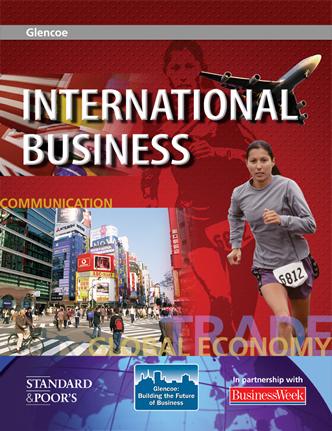
International BusinessUnit 4: International Marketing and FinanceBusinessWeek Global BusinessRead the complete article and answer these questions from your textbook:
A Billion Tough SellsThe Chinese car buyer is very demanding in a ferociously competitive market. Sales tactics are racing to catch up. Zhang Guangming's car-buying synapses have been in overdrive for months. He has spent hours poring over Chinese car buff magazines, surfing Web sites to mine data on various models, and trekking out to a dozen dealerships across Beijing. Finally, Zhang settled on either a Volkswagen Bora or a Hyundai Sonata sedan. But with cutthroat competition forcing dealers to slash prices, he's not sure whether to buy now or wait. Another snag: His $18,500 budget might not fetch the combination of design and drivability he covets. "I am looking for the best engine performance," the 30-year-old trading company manager says while ogling a blue Bora at a Beijing VW dealer. "And it can't be too ugly. Style is important." So make that an economy sedan with high-end performance and bodacious styling that's priced low enough to retain its value despite corrosive price deflation. If Zhang sounds a bit picky, well, he's not too different from most of his car-buying peers on the mainland. Both foreign and domestic auto makers are quickly discovering that while 84% of new-car sales in China are to first-time buyers, those folks are anything but naive. "Chinese buyers are very demanding and not very forgiving," says John Humphrey, the managing director in charge of China operations at J.D. Power & Associates Inc. (MHP) (like BusinessWeek, a unit of The McGraw-Hill Companies). That's a problem for U.S., European, and Asian carmakers. Manufacturers from across the globe have invested billions of dollars in new plants in China. The prize: a share of the world's most dynamic auto market. Last year passenger car sales in China jumped 26%, to 3.1 million vehicles. The mainland is now the world's No. 3 auto market after the U.S. and Japan. This year, sales are expected to grow 12% or so, compared with no increase in the U.S. The competition is fierce. As many as 100 domestic and 10 foreign manufacturers are slugging it out. Consumers can now select from about 25 entry-level compacts such as the Chery QQ and Honda Motor Co.'s (HMC) Fit. Not enough choice? Another 25 new models—from subcompacts to SUVs—are due out this year. That may be great for consumers, but it's murder on manufacturers. The average price for a compact in China has fallen by 28% since 2000, while other categories are off by more than 20%, J.D. Power says. "China used to be a very profitable market for everyone," but growing competition has eaten into earnings, says Yoshimi Inaba, Toyota Motor Corp.'s (TM) executive vice-president in charge of China. For Toyota and its rivals, cracking the code on Chinese buying habits is crucial. That can be tricky. With so many first-time buyers, there's little brand awareness and almost no brand loyalty. Middle-class Chinese often spend more than a year's income for even a low-end car, and 89% pay in cash, J.D. Power data show. About half of all Chinese buyers rely on the opinions of family and friends when making this critical purchase. That means driving a dud isn't just disappointing. It's also a huge loss of face for both the buyer and anyone who offered advice. Another quirk: One-third of Chinese rate engine and transmission performance as their No. 1 priority, vs. only 19% in the U.S. and 11% in India. A car "has to have an energetic heart," insists Luo Changyi, a 24-year-old Beijing resident who drives a Volkswagen Golf. For auto makers, those idiosyncrasies call for some innovative tactics. General Motors Corp. (GM) advertises heavily on MTV to attract younger customers in a market where the median age of car buyers is 35, vs. 50 in the U.S. GM displayed its Chevy Epica sedan at last year's MTV music awards show in China, and MTV has lined up Chinese pop stars for GM promotions. The effort seems to be working: GM last year overtook VW as the top-selling manufacturer on the mainland. "We have a young, energetic family buyer, so this appeals to them," says Chevrolet Brand Director Dale Sullivan. Chinese brands are jumping in with their own marketing gimmicks. Geely Automobile Holdings Ltd. sponsors owners' clubs, which help build brand loyalty and all-important word-of-mouth advertising. Prospective buyers "will stop a person parking a Geely and ask them: 'What do you think of this car?'" says Geely Executive Director Lawrence Ang. Last year a pair of company engineers joined Geely drivers on a 300-mile journey from Beijing to Inner Mongolia to teach the owners how to handle their cars in rough conditions. "The most effective marketing is to treat your existing customers very well," Ang says. Nissan Motor Co. (NSANY) would agree with that. To make sure its customers stay happy, Nissan three years ago dispatched six retired dealership executives from Japan to help improve showroom cleanliness, interaction with customers, and after-sales service. The payoff? Nissan dealers in China ranked No. 1 in customer service for 2005, according to J.D. Power. That matters since even routine maintenance problems can be a brand-killer in a market of newbie drivers. Says Yasuaki Hashimoto, who oversees Nissan's sales in China: "We want our first-time buyers to be second- and third-time ones." By Brian Bremner and Dexter Roberts, with Ian Rowley in Tokyo March 20, 2006 Copyright 2000-2006 by The McGraw-Hill Companies Inc. All rights reserved. |  |















